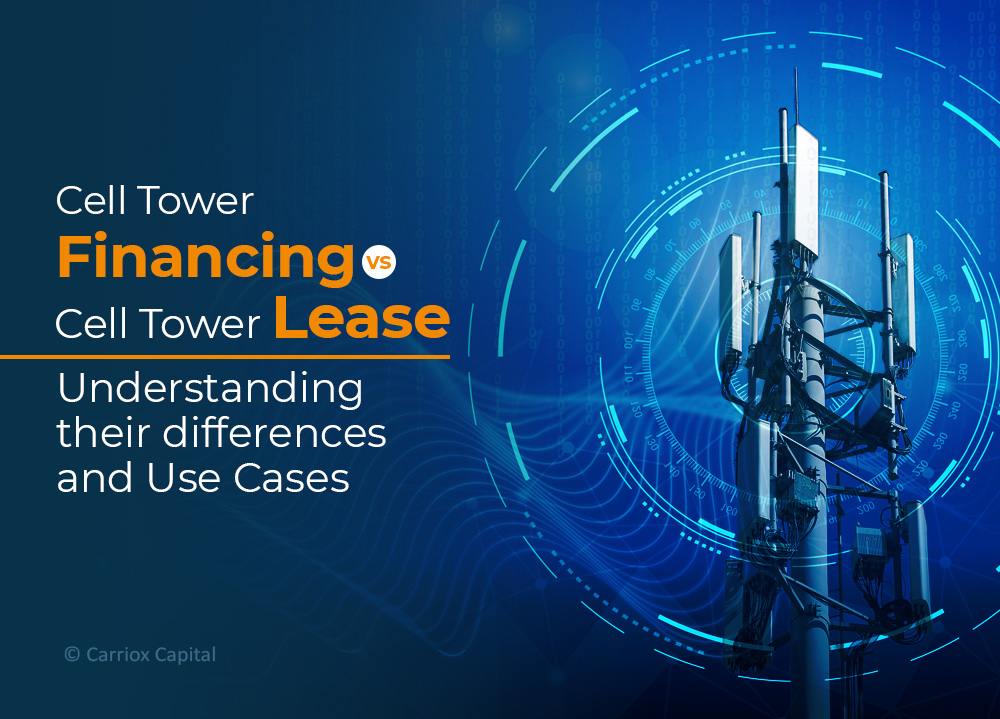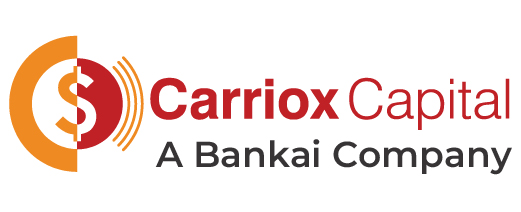Connectivity Chronicles: Understanding the Nuances of Cell Tower Financing vs Cell Tower Lease

The building and maintenance of cell towers are essential to ensure smooth connectivity in the constantly changing telecommunications market. Long-term success for companies in the telecommunications sector depends on making wise financial decisions about the installation and maintenance of cell towers.
Cell tower leasing and financing are two options that companies frequently consider. This blog post will explore the nuances of these choices and provide information on telecom invoice factoring, an important financial resource that can have a big influence on the choice-making process.
Cell Tower Construction Financing: The Silent Sentinel
Cell towers stand as the silent sentinels, ensuring seamless connectivity for millions of people worldwide. These towering structures are the backbone of modern communication, enabling us to make calls, send texts, and access the internet with unprecedented ease. However, the construction and maintenance of cell towers require substantial financial investment, and this is where cell tower construction financing plays a pivotal role.
Initial Investment
Constructing a cell tower demands significant capital for various elements, including tower erection, antenna installation, equipment setup, and site acquisition. Cell tower construction financing refers to the financial mechanisms employed by telecommunication companies to secure the necessary funds for these ventures. Given the capital-intensive nature of these projects, businesses often seek financing options tailored to the specific requirements of cell tower construction.
Specialized Lenders
Unlike generic business loans, cell tower construction financing often involves collaboration with specialized lenders or financial institutions well-versed in the intricacies of the telecommunications industry. These lenders understand the unique challenges and opportunities presented by cell tower projects, allowing them to offer tailored financial solutions. These solutions encompass not only the construction costs but also other essential expenses such as permits, environmental assessments, and compliance with regulatory standards.
Tailored Financial Packages
Cell tower construction financing packages are structured to accommodate the diverse needs of telecommunication companies. These packages may include equipment financing for state-of-the-art technology, leasehold improvements for site optimization, and working capital to ensure the smooth progress of construction. The flexibility of these packages enables businesses to manage their finances efficiently and allocate resources where they are needed the most.
Competitive Interest Rates
One of the key advantages of specialized cell tower construction financing is the competitive interest rates offered by these lenders. These rates are often customized to reflect the industry’s dynamics and ensure that businesses can repay their loans without being burdened by exorbitant interest costs. Lower interest rates translate into significant cost savings over the duration of the loan, bolstering the financial health of the telecom companies.
Streamlining the Process
Cell tower construction financing not only provides the necessary funds but also streamlines the financing process. Experienced lenders guide businesses through the complexities of securing permits, meeting regulatory requirements, and ensuring environmental compliance. This support is invaluable, especially for companies navigating the maze of regulations governing the construction of cell towers.
Long-term Investment
Investing in cell tower construction is a long-term strategy that guarantees a steady revenue stream for telecommunication companies. By expanding their network coverage through strategically positioned towers, businesses can tap into new markets, cater to a broader customer base, and foster continuous growth. Cell tower construction financing enables companies to make this long-term investment without compromising their immediate financial stability.
Understanding Cell Tower Lease
Cell tower leasing involves renting out space on existing towers to telecommunication companies. These towers are owned by tower companies, private individuals, or even other telecom entities. By leasing space on these structures, telecom companies gain immediate access to established infrastructure without the significant upfront costs associated with building new towers. This approach is especially attractive for businesses aiming to expand their network footprint swiftly and efficiently.
Benefits of Cell Tower Lease
Cost-Efficiency
Leasing space on existing cell towers significantly reduces initial capital expenditure. This cost-effectiveness allows businesses to allocate resources to other essential areas, such as research and development, customer service, or technology upgrades.
Rapid Expansion
Cell tower leasing facilitates rapid expansion into new regions or markets. By leveraging pre-existing towers, telecommunication companies can establish their presence in areas that might be otherwise challenging or time-consuming to access.
Focus on Core Competencies
Leasing cell tower space enables telecom companies to concentrate on their core competencies, such as improving service quality, enhancing network infrastructure, and innovating new products and services. This specialization often leads to improved customer satisfaction and increased market share.
Risk Mitigation
The financial risks associated with owning and maintaining cell towers, such as repairs, upgrades, and compliance with regulations, are mitigated when leasing from third-party tower owners. This allows telecom companies to focus on their operations without being burdened by the complexities of tower management.
Optimizing Cell Tower Lease through Telecom Invoice Factoring
While cell tower leasing offers numerous advantages, the associated cash flow challenges can hinder a company’s ability to seize immediate opportunities. Delayed payments from carriers, a common issue in the telecommunications industry, can create financial gaps. This is where telecom invoice factoring emerges as a strategic financial tool.
Telecom Invoice Factoring Explained
Telecom invoice factoring involves selling outstanding invoices to specialized finance companies at a discounted rate. These factoring companies, understanding the industry’s nuances, provide immediate cash against these invoices. Invoice factoring is one of the main reasons why telecom financing is thriving and reaching new heights. For telecommunication companies leasing cell tower space, this means quick access to funds, bridging the cash flow gap caused by delayed payments.
Benefits of Telecom Invoice Factoring in Cell Tower Lease
Steady Cash Flow
Telecom invoice factoring ensures a consistent cash flow, allowing telecom companies to meet their financial obligations, including lease payments for cell tower space. This stability is crucial for maintaining positive relationships with tower owners and avoiding any disruptions in services.
Flexibility and Agility
Immediate access to funds through invoice factoring grants telecom companies the flexibility to explore new opportunities, invest in technology upgrades, or expand their leased tower portfolio. This agility is vital in a competitive market where rapid decisions can lead to substantial growth.
Enhanced Negotiation Power
Having reliable cash flow, courtesy of telecom invoice factoring, empowers telecom companies during lease negotiations. They can approach discussions from a position of financial strength, potentially securing more favorable terms and conditions in their leasing agreements.
Strategic Expansion
With a stable financial foundation, telecom companies can strategically expand their leased tower network. They can identify high-demand areas, negotiate favorable lease agreements, and swiftly deploy their services, ensuring they capture a larger market share.
Making an Informed Business Decision
When it comes to choosing between cell tower financing and leasing, businesses must assess their long-term goals, financial capabilities, and market demands. Factors such as scalability, control over infrastructure, and financial stability should be carefully considered.
For businesses opting for cell tower financing, they must employ smart tips for successful telecom invoice financing application that explores telecom invoice factoring as a complementary financial strategy that can significantly enhance their financial resilience. By leveraging factoring services, companies can navigate the challenges associated with delayed payments, ensuring a seamless flow of funds for sustained growth.
Final Thoughts
In conclusion, the decision between cell tower financing and leasing in the telecommunications industry is nuanced and multifaceted. Each option comes with its advantages and challenges, necessitating a thorough evaluation of the company’s objectives and financial landscape. Additionally, incorporating telecom invoice factoring into the financial toolkit can provide businesses with the flexibility and liquidity needed to thrive in a competitive market.
As the telecommunications industry continues to evolve, staying abreast of innovative financing solutions and making informed decisions will be key to achieving sustainable success. Contact our experienced team as we embrace a strategic approach that encompasses cell tower financing, leasing, and telecom invoice factoring. We help businesses in positioning themselves as industry leaders, ensuring robust connectivity and superior service for their customers.

Arpit Sharma
Arpit Sharma is a Senior Content Writer at Panamax, Inc. with expertise in tech content writing, social media platform management, and more. With a vibrant educational background that includes the amalgamation of electronics and communication engineering and Mass Communication & Journalism, he uses his expertise to curate good content. In his free time, he spends time running marathons, cyclothons, and spending time with his family.

